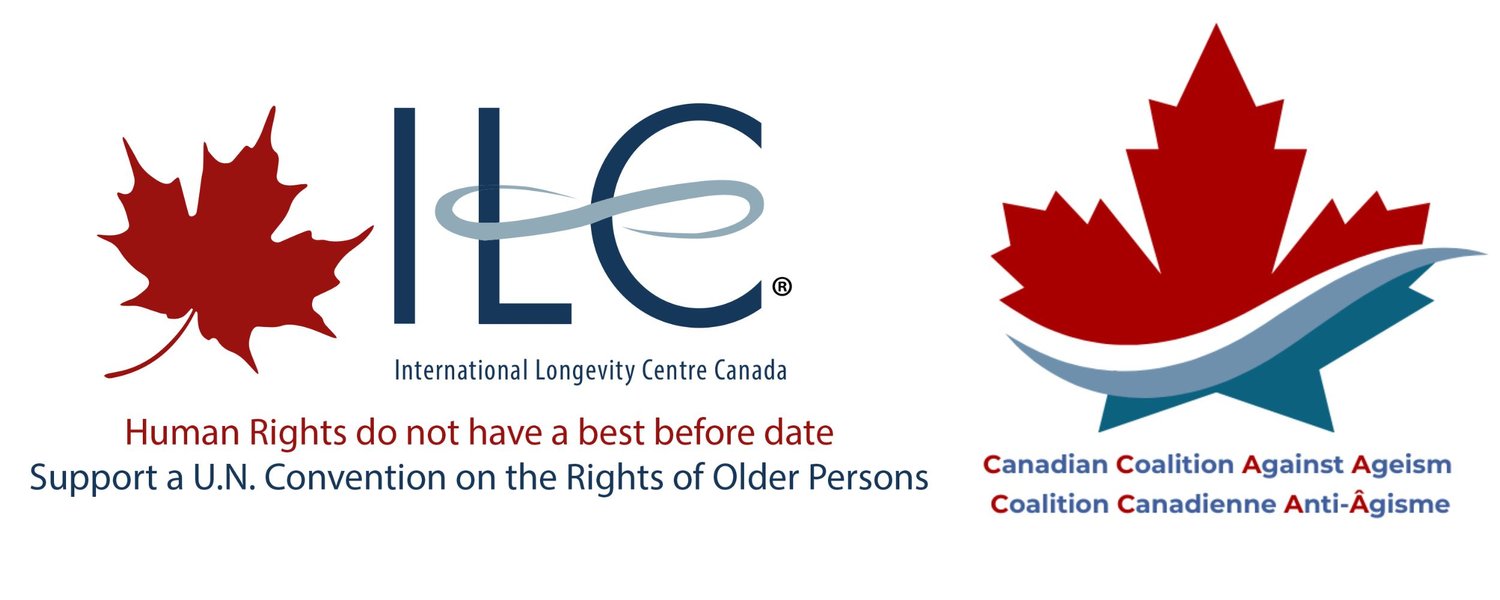A United Nations Convention on the Rights of Older Persons:
Why do we need one?
Issue:
Why should Canada support a United Nations Convention on the Rights of Older Persons (UN Convention)?
Background:
ILC Canada has been advocating for the rights of Older Persons at the United Nations, with a particular focus on the need for a UN Convention.
What would a Convention do?
Combat Ageism:
Ageism, the stereotyping, prejudice and discrimination against older persons is prevalent worldwide. According to research it is ”more pervasive than sexism and racism” (AGE Platform Europe). A UN Convention provides a universal position that ageism is morally and legally unacceptable and obliges states to adopt nondiscriminatory laws.
Change People’s Lives:
While international human rights laws apply to all ages, specific reference to older persons is rare and their rights are not protected sufficiently by human rights mechanisms, governments and civil society. Research illustrates that current UN Conventions (i.e., for women, children, persons with disabilities) have positively changed the lives of recipients.
Set Out Responsibilities:
While international human rights laws apply to all ages, specific reference to older persons is rare and their rights are not protected sufficiently by human rights mechanisms, governments and civil society. Research illustrates that current UN Conventions (i.e., for women, children, persons with disabilities) have positively changed the lives of recipients.
Improve Accountability:
A UN Convention would provide reporting and accountability mechanisms for States actions towards older people and would provide a redress system for violations of older people’s rights, including allowing NGO’s and the private sector to dialogue with the UN on the implementation of the Convention.
Guide Policy-making:
A Convention would provide a framework for policies on older persons, encourage the collection of information on older persons and help government to allocate resources more fairly. It would encourage greater development for programs benefiting older persons.
Conclusion:
A Convention could guide the Government on how it can protect older persons rights. It provides a basis for policy, programming, public awareness, and education. Government has a role to play in joining the campaign to end ageism and the human rights violations of older persons. One proven method is to support a United Nations Convention on the Rights of Older Persons and related work to increase UN programming to include older persons (i.e., SDG’s, HLPF). Conventions positively impact rights holders, particularly the most vulnerable, including women living in poverty, Indigenous people, LGBTQ and newcomers to Canada.
*Compiled from “Strengthening Older People’s Rights” (HelpAge International); “Why We Need a Convention “ The Global Alliance For the Rights of Older People.



